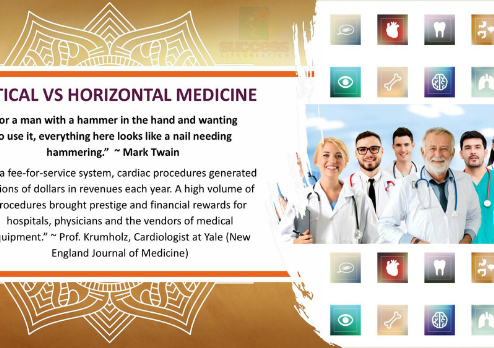
The barrier of medicine’s tradition of organizing doctors into rigid specialties is to be looked into deeper. The cardiologist treats the heart, the neurologist treats the brain, the rheumatologist treats the joints, and the gastroenterologist treats the stomach. The problem with this “-ologist” tradition is that it is created by the medicine industry.
Too often a doctor’s knowledge is vertical rather than horizontal. Doctors understand their specialty, deep down into science, but they do not understand very much across all other disciplines of medicine.
If you go to your gastroenterologist and say that your stomach hurts, that you have a rash and all your joint hurts. Your doctor might well say that he shall take care of your stomach, but you must go and see a dermatologist for your rash and a rheumatologist for your joints. Unfortunately, this separate approach contradicts how the body works. A stomach problem can cause skin problems and joint problems. Unless you deal with all the problems together, you may not get to the root of the problem.
What complicates the matter is that the field of medicine has given rise to a slew of organ-based specializations such as neurology, cardiology, dermatology, ophthalmology, urology, gynecology, endocrinology, etc. - as well as disease based specializations such as oncology (for cancer), gerontology (for diseases of the aging) that each have their respective modes of treatment and therapy.
The end result is a medical model not unlike the legend from our country about the six blind men who encountered an elephant.